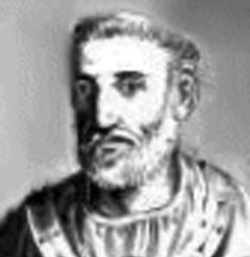Saint of the Day Online - St Peter Chrysologus
Saint of the day online, Saturday, March 30, 2017
30-07-2017
Saint Name: St Peter Chrysologus
Place: Italy
Birth: 380
Death: 450
Feast: July 30
St Peter Chrysologus who was born on 380 was Bishop of Ravenna from about 433 until his death.He is known as the “Doctor of Homilies” for the concise but theologically rich reflections he delivered during his time as the Bishop of Ravenna.
He is revered as a saint by the Roman Catholic Church and the Eastern Orthodox Church; he was declared a Doctor of the Church by Pope Benedict XIII in 1729.
He practiced many corporal and spiritual works of mercy, and ruled his flock with utmost diligence and care. He extirpated the last vestiges of paganism and other abuses that had sprouted among his people, cautioning them especially against indecent dancing. "Anyone who wishes to frolic with the devil," he remarked, "cannot rejoice with Christ." He also counseled the heretic Eutyches (who had asked for his support) to avoid causing division but to learn from the other heretics who were crushed when they hurled themselves against the Rock of Peter.
In his extant homilies, Bishop Peter explained Biblical texts briefly and concisely. He also condemned Arianism and Monophysitism as heresies and explained the Apostles' Creed, the mystery of the Incarnation, and other topics in simple and clear language. He dedicated a series of homilies to Saint John the Baptist and the Blessed Virgin Mary. Peter advocated daily reception of Eucharist. He urged his listeners to confide in the forgiveness offered through Christ. His surviving works attest to the Church's traditional beliefs about Mary's perpetual virginity, the penitential value of Lent, Christ's Eucharistic presence, and the primacy of St. Peter and his successors. He shared the confidence of Saint Pope Leo I the Great (440-461), another doctor of the Church.
He died at Imola, Italy in 450 and in 1729 was made a Doctor of the Church, largely as a result of his simple, practical, and clear sermons which have come down to us, nearly all dealing with Gospel subjects.